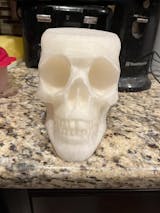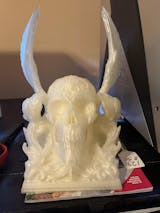No problems with the PLA. I originally came to COEX for the Green Bay Green & Gold colors. Delivery with regular shipping actually arrived next business day.
Was awesome to work with but i didn’t have enough on the roll. Did 2prints that should have totaled 900 and it ran out about 20 min before it was done
Printed super smooth as silk! Best I’ve found outside of my machines manufactured PLA. You can’t go wrong with a company that makes filament matched to the best football team in America. Go Packers!
Great filament. Spool doesn’t run well in AMS and has to be respooled onto plastic spool. Filament pinches on sides often.
This stuff just looks great and runs just as well as any of the other filaments I've gotten from COEX 3D. Very happy I found this brand, it's always a fun extra bit when i tell people it came from a company here in WI.



